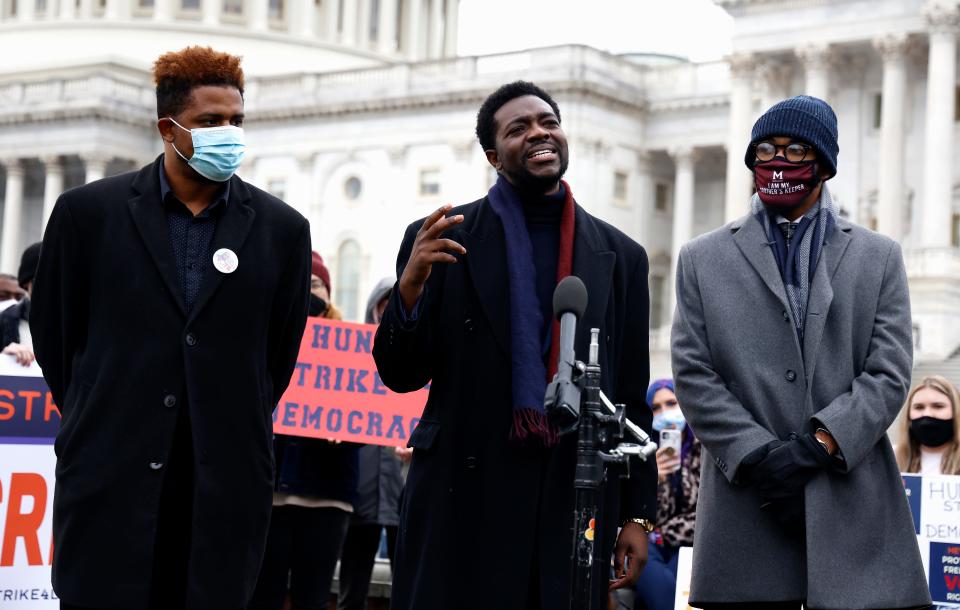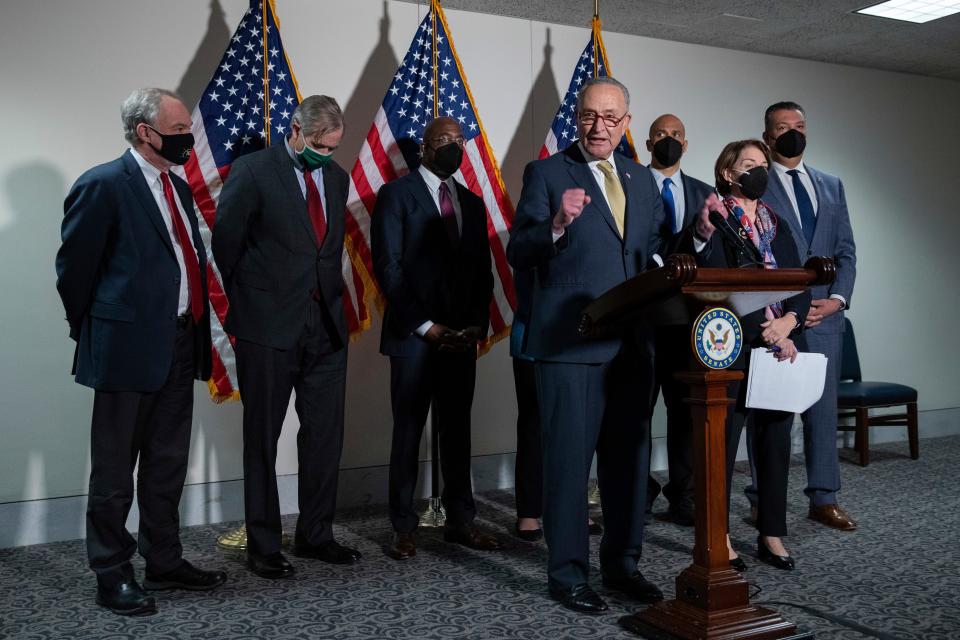Flag on the field on voting rights: Faith leaders urge NFL to move 2023 Super Bowl from Arizona
WASHINGTON – A group of faith leaders are calling on the NFL to pull next year’s Super Bowl out of Arizona because of what they describe as the state's restrictive election laws.
The move comes in the wake of a failed vote in the U.S. Senate Wednesday night to advance federal voting rights bills.
“This has historical precedence,'' the Rev. Stephen A. Green, chair of Faith for Black Lives, a faith-based social justice organization, told USA TODAY. “We're calling on the NFL to do it again. We will begin applying pressure on the NFL to honor our request.”
In 1991, the NFL pulled the 1993 Super Bowl XXVII out of Arizona because the state refused to make Martin Luther King Jr.'s birthday a state holiday. It became a federal holiday in 1986, but Arizona didn't make it a state holiday until 1992. The Super Bowl was moved to California.
“We know that the NFL, with its social justice initiative, can be inclined,’’ to act, said Green, pastor of the St. Luke AME Church in New York. “They have a year’s advance notice and I believe it’s something that they can do. They should not be supporting voter suppression in states.”

The faith leaders plan to unveil their campaign Monday, which will include a petition and a social media campaign. They are also meeting this Friday to discuss other potential actions, including economic boycotts.
The NFL did not immediately respond to USA TODAY's request for comment.
More: Democrats came up short on MLK day promise. What's next for the push for a voting rights bill?
More: Opinion: 'We lost:' This time when fighting racism, the sports world failed
'We are going to be resilient'
Earlier this week on MLK Day, Faith for Black Lives and other groups ended a hunger strike to press Congress to pass voting rights bills. The next day, some members, including Green, were arrested for protesting outside the U.S. Capitol as senators debated the legislation inside.
The faith-based organization is among scores of social justice and civil rights groups across the country pressing Congress to pass voting rights measures, including the John Lewis Voting Rights Advancement Act. The bill would, among other things, restore provisions in the Voting Rights Act requiring states with a history of voting discrimination to obtain federal approval before making election changes.
“We are going to be resilient,’’ said LaTosha Brown, co-founder of Black Voters Matter, one of the groups protesting at the Capitol Tuesday.
Brown called the lack of congressional action on the measures a “domestic threat to this democracy.’’ She said voting rights groups will hold Democrats and Republicans accountable.
Activists' efforts have included marches, hunger strikes and protests, including some outside the White House and statehouses. They complain that in recent years, more states, including Arizona, have adopted restrictive voting laws.
More: ‘A new American fault line’: How new election laws will make it harder for 55 million to vote
More: As action stalls in DC, Democrats look to state leaders to defend, expand voting rights
The Brennan Center tracked more than 425 bills in 49 states in the 2021 legislative session that include restrictive provisions, such as reducing early voting hours, imposing stricter ID requirements and limiting the number of mail ballot drop boxes. Republicans said the bills protect against voter fraud.
Arizona is one of four states that adopted multiple restrictive voting laws, including making it harder to remain on absentee voting lists and imposing stricter signature requirements for mail ballots, according to Brennan.
Much of the fight over voting rights this week focused on Congress.
The Senate voted Wednesday night to end debate on a voting rights bill that combined to measures. Republicans voted against moving the bill to the Senate floor for a final vote. Democrats needed 60 votes to overcome a legislative procedure known as the filibuster. A separate vote to change the filibuster rules for the voting rights bill so it could pass with a simple majority of 51 votes also failed.

Contributing: Ledyard King, Mike Freeman
This article originally appeared on USA TODAY: NFL urged to move next year's Super Bowl in Arizona over voting rights

